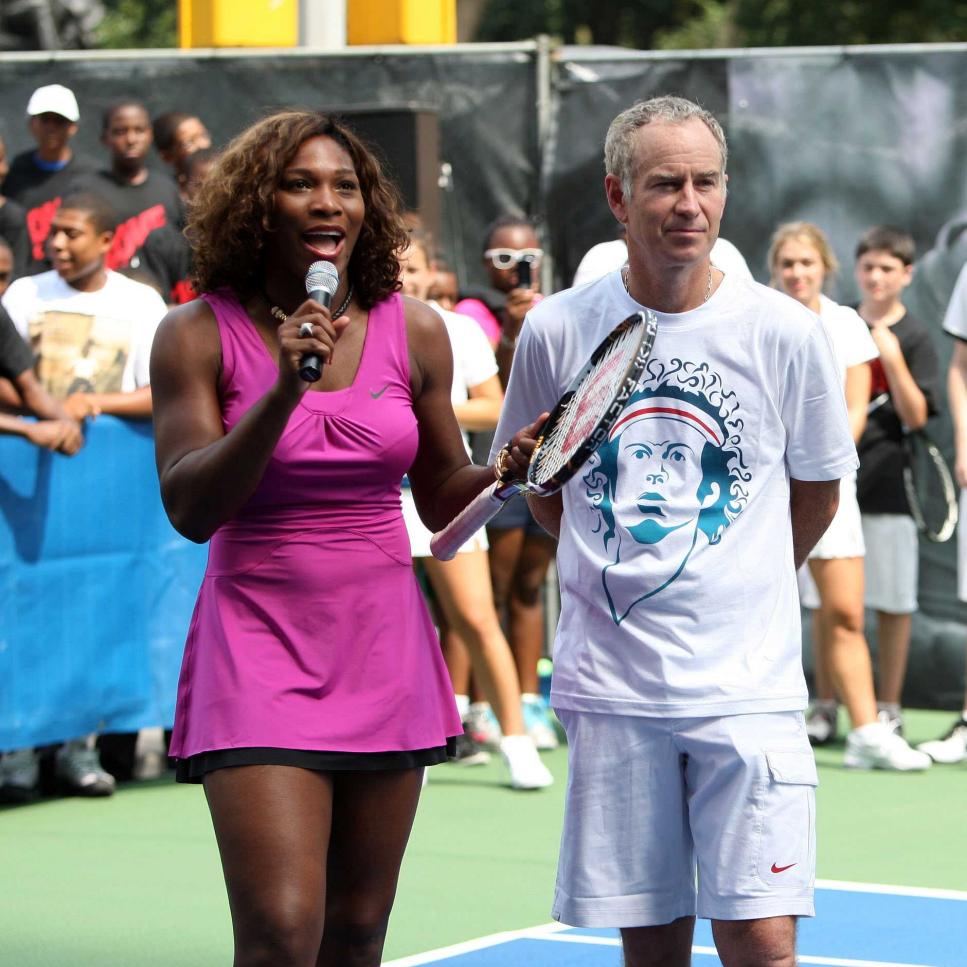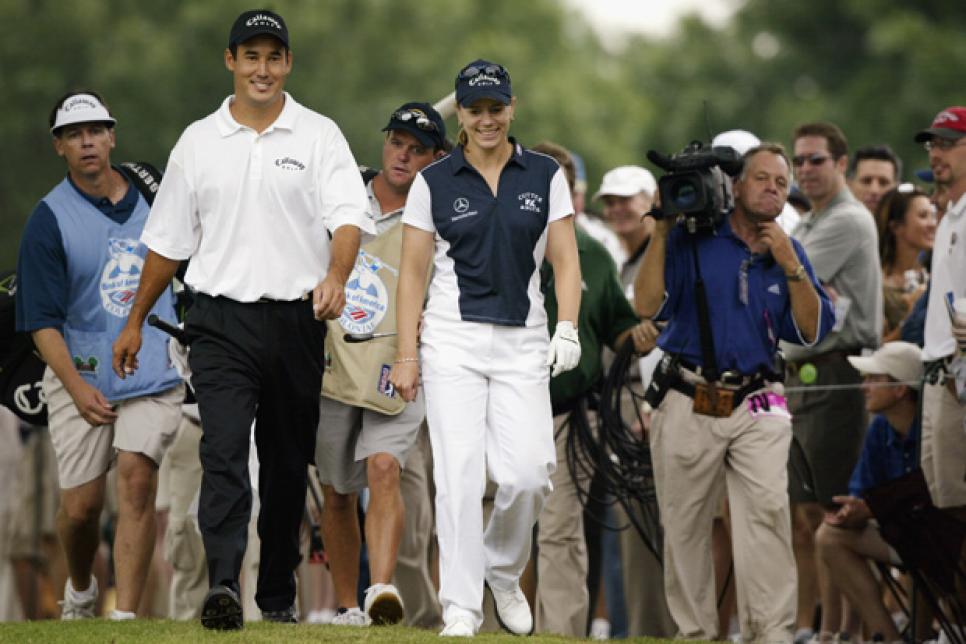The Loop
John McEnroe confirms talking about male vs. female athletes is an absolute death trap

Bryan Bedder
Multiple choice question: In a discussion with NPR about where Serena Williams ranks among the greatest tennis players of all time, John McEnroe's response should have been:
A) That Serena is absolutely the best player ever, male or female.
B) That Serena ranks as the greatest female tennis player of all time, but if she played the men's circuit, it would be "an entirely different story" (this was McEnroe's actual answer, by the way).
or ...
C) That he didn't hear the question, something's wrong with this mic, and oh shoot, I totally forgot I'm late for a dentist appointment.
In case you were unclear, the correct answer is C. For McEnroe to broach how Williams, winner of 23 Grand Slam titles and 72 titles overall, would fare against male competition is what's known an "unwinnable argument." It diminishes Williams' standing as one of the greatest athletes of her generation (no qualifier, full stop). It repositions McEnroe, just weeks removed from a fairly enlightened stance defending LGBT players, as some tone-deaf old coot. And it reintroduces comparisons between male and female athletes, which we've seen time and again, are quantifiably impossible.
The only thing McEnroe's answer did accomplish was drum up interest in his latest book--way more so, it's fair to say, than if he gave the aforementioned evasive, diplomatic answer.
But back to McEnroe's controversial stance that Williams would rank around 700th in the world if she played against men. This was an honest, not entirely off-base response factoring in the physical advantages men have over women, while also conceding Williams could win her share of matches on the merits of her mental strength (by the way, the current 700th-ranked player in the world is Egyptian Issam Haitham Taweel, who is 27 and apparently only 5-foot-2. Game on?!). Did McEnroe's remarks come across as slightly condescending? Of course. Did he help his cause by entering into the discussion about how he, at age 60, would fare in a match against Williams? Probably not.
(For what it's worth, Williams, in her Twitter response, also said McEnroe's remarks were not "factually based.")
But the larger point is these conversations, while certainly buzzworthy, often deliver an unsatisfying conclusion. One of the landmark sporting events of the last two decades was Annika Sorenstam, at the height of her LPGA dominance, competing on the PGA Tour at Colonial in 2003. I was there, and it was a riveting two days, the fairways lined with inspired little girls and throngs of media chronicling one of the greatest female players ever playing against her male contemporaries. Sorenstam was a model of grace and grit. Her ball-striking was superb. But she also shot 71-74 and missed the cut by four shots.

There was still much achieved by Sorenstam's PGA Tour experiment, if only to show the gap between men and women wasn't as wide as some might think. But it also risked contriving a complex topic about the differences between men and women, and it fueled one of McEnroe's other statements in his NPR interview. "Maybe at some point a women's tennis player can be better than anybody," he said. "I just haven't seen it in any other sport, and I haven't seen it in tennis."
The point isn't that McEnroe was wrong. It's just some conversations are far more complicated than they seem.